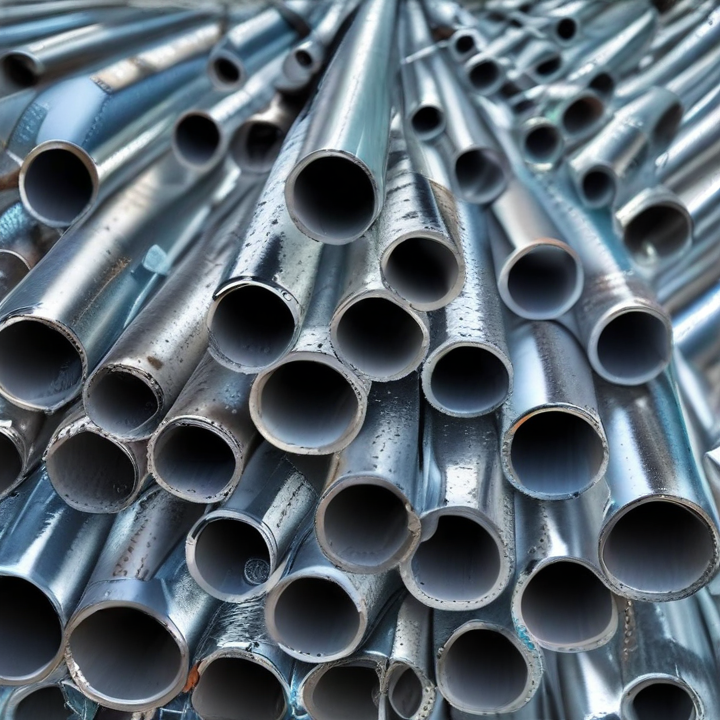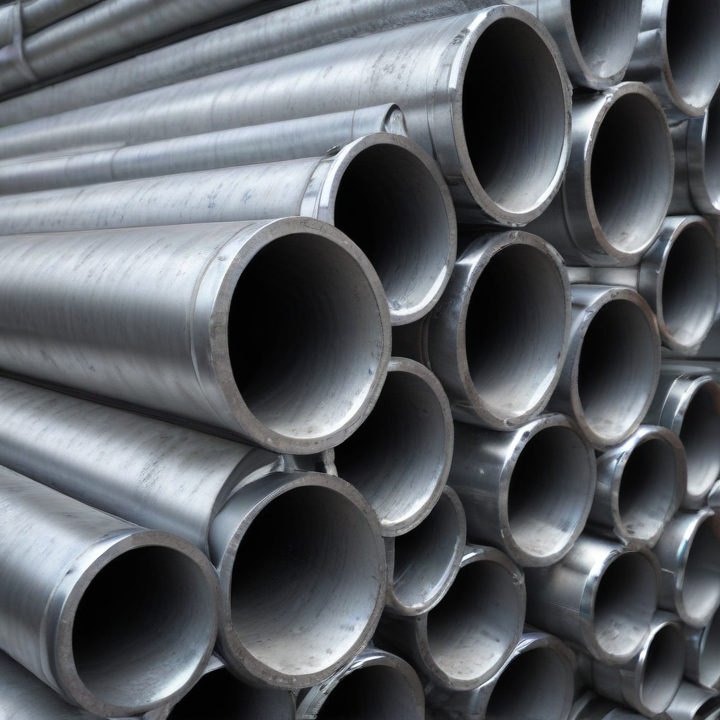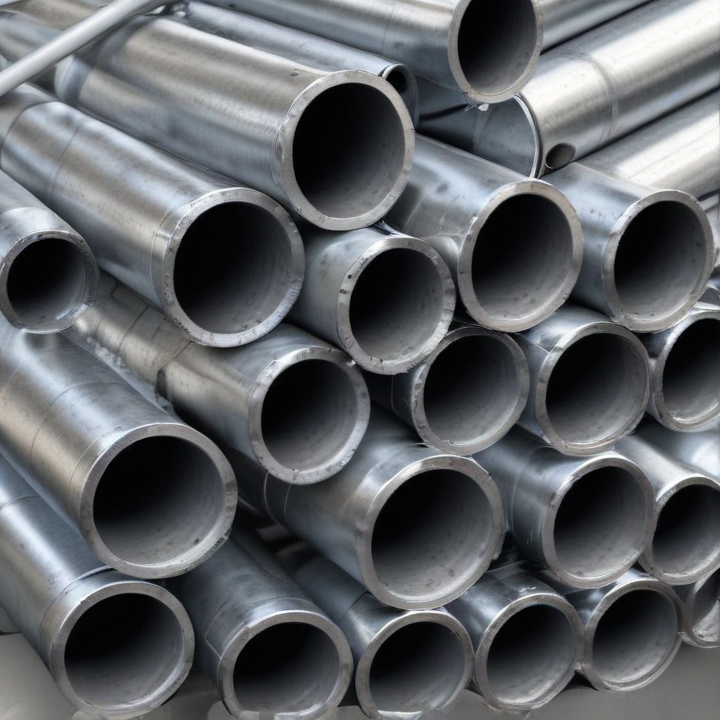galvanized steel pipes Safety Certifications
Galvanized steel pipes, widely used for water supply, gas lines, and structural applications, must adhere to several safety certifications to ensure their quality and safety. Here are the key certifications and standards:
1. ASTM International Standards: ASTM (American Society for Testing and Materials) sets rigorous standards for galvanized steel pipes, including ASTM A53 and ASTM A123. ASTM A53 covers the requirements for the physical and mechanical properties of the pipes, while ASTM A123 outlines the zinc coating specifications to ensure proper galvanization.
2. ISO Standards: The International Organization for Standardization (ISO) provides globally recognized standards such as ISO 9001 for quality management systems, ensuring that manufacturers consistently meet customer and regulatory requirements. ISO 1461 specifies the requirements for hot-dip galvanized coatings on fabricated iron and steel articles.
3. API Standards: The American Petroleum Institute (API) standards, particularly API 5L and API 5CT, govern the manufacturing of steel pipes used in the oil and gas industries. These standards ensure that the pipes meet the necessary safety and performance criteria.
4. NSF Certification: The National Sanitation Foundation (NSF) certifies pipes for potable water applications. NSF/ANSI 61 is the standard for ensuring that pipes do not contribute contaminants to drinking water, making it crucial for galvanized steel pipes used in water supply systems.
5. UL Certification: Underwriters Laboratories (UL) certifies galvanized steel pipes for fire protection systems, including sprinkler systems. UL 852 outlines the standards for materials, construction, and performance of the pipes used in these critical safety applications.
6. ANSI Standards: The American National Standards Institute (ANSI) also sets standards for the safety and performance of galvanized steel pipes. ANSI standards ensure compatibility and interoperability of the pipes with other components in a system.
Adhering to these certifications ensures that galvanized steel pipes meet safety, quality, and performance standards required for various applications, thereby protecting public health and safety.
List Reference Technical Parameters of "galvanized steel pipes"
Reference Technical Parameters of Galvanized Steel Pipes
1. Material Specifications:
- Base Material: Carbon steel, typically conforming to ASTM A53, A106, or equivalent standards.
- Coating: Zinc, applied via hot-dip galvanizing (HDG) or electro-galvanizing.
2. Dimensions:
- Diameter: Ranges from 1/8 inch to 24 inches (nominal pipe size).
- Wall Thickness: Schedule 10, 20, 40, 80, etc., indicating the wall thickness and pressure rating.
- Length: Standard lengths of 6 meters (20 feet) or 12 meters (40 feet).
3. Mechanical Properties:
- Tensile Strength: Minimum 335 MPa (48,500 psi).
- Yield Strength: Minimum 205 MPa (30,000 psi).
- Elongation: Typically 20% to 30% in 2 inches (50 mm).
4. Coating Specifications:
- Zinc Coating Thickness: For HDG, typically 40-85 microns (μm), conforming to ASTM A123/A123M.
- Adhesion: The zinc coating should be continuous and adherent, passing a bend test without flaking.
5. Corrosion Resistance:
- Salt Spray Test: Typically withstands 500 hours or more in a salt spray test (ASTM B117).
6. Chemical Composition:
- Carbon (C): ≤ 0.25%
- Manganese (Mn): ≤ 1.20%
- Phosphorus (P): ≤ 0.05%
- Sulfur (S): ≤ 0.05%
7. Standards and Certifications:
- ASTM Standards: A53/A53M, A123/A123M for coating, A795 for fire protection.
- ISO Standards: ISO 1461 for HDG.
- BS EN Standards: BS EN 10240 for HDG.
8. Physical Properties:
- Density: Approximately 7.85 g/cm³.
- Thermal Conductivity: 50 W/m·K (at 25°C).
- Modulus of Elasticity: 200 GPa.
9. Applications:
- Used in water and gas pipelines, structural applications, fencing, and scaffolding due to its corrosion resistance and mechanical properties.
These parameters provide a comprehensive understanding of galvanized steel pipes, ensuring suitability for various industrial and structural applications.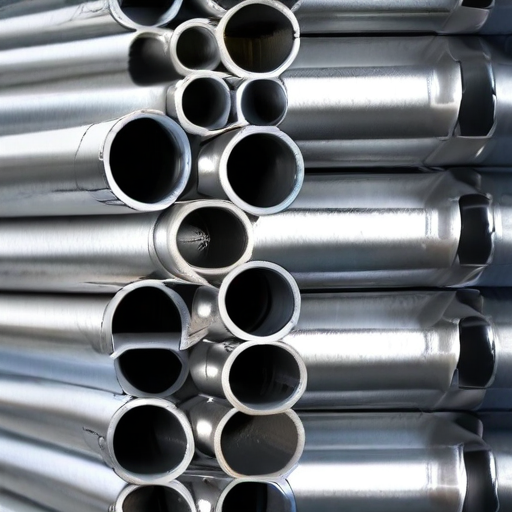
List Product features of "galvanized steel pipes"
Galvanized steel pipes are widely used in various industries due to their durability and resistance to corrosion. Here are the key product features of galvanized steel pipes:
1. Corrosion Resistance: The zinc coating on galvanized steel pipes provides a protective layer that resists rust and corrosion, significantly extending the pipe's lifespan compared to non-galvanized steel.
2. Durability: These pipes are strong and durable, capable of withstanding high pressures and heavy loads. This makes them suitable for a wide range of applications, from construction to plumbing.
3. Versatility: Galvanized steel pipes can be used in a variety of environments and applications, including water supply lines, outdoor and indoor piping, scaffolding, and structural support.
4. Cost-Effectiveness: Although the initial cost may be higher than other materials, the long-term savings due to reduced maintenance and replacement costs make galvanized steel pipes a cost-effective choice.
5. Easy Installation: Galvanized steel pipes are easy to install, with a range of fittings available to create various configurations. They can be welded, threaded, or joined with couplings.
6. Fire Resistance: The non-combustible nature of galvanized steel pipes makes them suitable for applications where fire resistance is important.
7. Environmental Friendliness: Galvanized steel is recyclable, contributing to sustainable building practices. The zinc used in the galvanizing process is also environmentally safe.
8. Smooth Interior Surface: The smooth interior of galvanized steel pipes reduces friction and ensures a steady flow of fluids, which is essential for plumbing and other fluid transport applications.
9. Long Lifespan: Galvanized steel pipes typically have a lifespan of 50 years or more, depending on the environment and usage conditions, making them a reliable choice for long-term projects.
10. Aesthetic Appeal: The shiny, metallic finish of galvanized steel pipes adds an industrial aesthetic that can be desirable in certain architectural designs.
These features make galvanized steel pipes a popular choice for both residential and industrial applications, providing a balance of strength, longevity, and cost-effectiveness.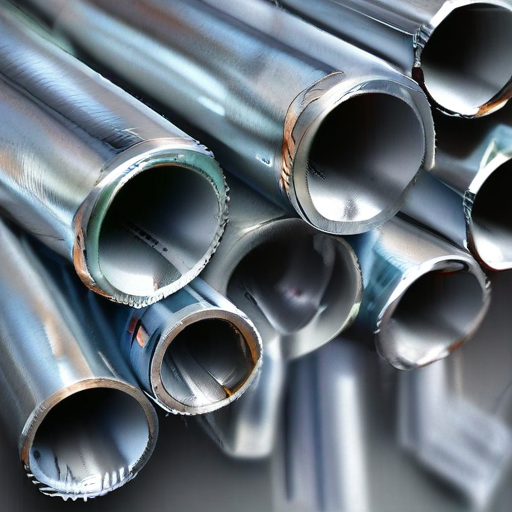
List Various Types of "galvanized steel pipes"
Galvanized steel pipes come in several types, each suited to different applications and offering unique properties. Here are the primary types:
1. Hot-Dip Galvanized Pipes: These are coated with a layer of zinc by immersing the steel in molten zinc. This process provides robust corrosion resistance, making them ideal for outdoor and industrial applications.
2. Cold Galvanized Pipes (Electro-Galvanized): These pipes are coated with a layer of zinc through an electrochemical process. Although they have a thinner zinc coating compared to hot-dip galvanized pipes, they still offer good corrosion resistance and are used in lighter-duty applications.
3. Pre-Galvanized Pipes: These pipes are manufactured from pre-galvanized steel sheets that are welded into pipes. The zinc coating is applied before the pipes are formed, offering a consistent surface finish and moderate corrosion resistance, suitable for indoor and low-moisture environments.
4. Galvannealed Pipes: These are hot-dip galvanized pipes that undergo an additional annealing process, resulting in a matte finish. They offer enhanced paint adhesion and are commonly used in automotive and appliance industries.
5. Galvanized Scaffolding Pipes: Specifically designed for construction, these pipes offer high strength and durability. They are used in scaffolding systems due to their resistance to corrosion and mechanical stress.
6. Fence Pipes: These galvanized pipes are often used in the construction of fencing systems. They provide long-term durability and resistance to weather conditions, making them suitable for residential, commercial, and agricultural fencing.
7. Water Supply Pipes: Galvanized pipes used for water supply are lined to prevent corrosion and contamination. They were commonly used in residential plumbing until the mid-20th century and are still found in older homes.
Each type of galvanized steel pipe is chosen based on specific needs, balancing factors like corrosion resistance, mechanical strength, and intended use environment.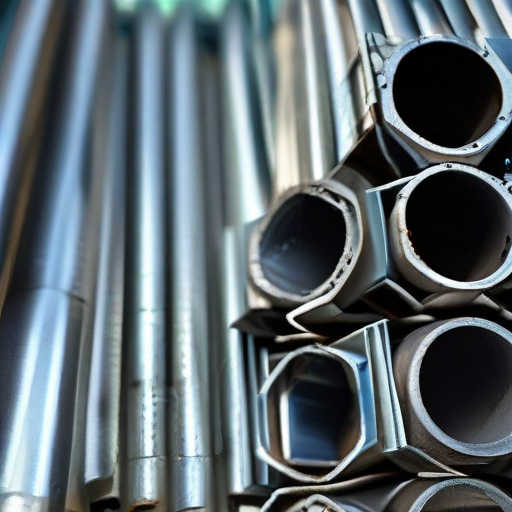
List Application of "galvanized steel pipes"
Galvanized steel pipes are widely used in various industries and applications due to their durability, corrosion resistance, and strength. Here are some of the primary applications:
1. Water Supply Systems: Galvanized steel pipes are commonly used in plumbing and water supply lines due to their resistance to rust and corrosion, ensuring a long service life.
2. Construction: They are used in structural applications such as scaffolding, framing, and support structures in buildings and bridges, providing strength and stability.
3. Agriculture: These pipes are used for irrigation systems, water supply for livestock, and in the construction of greenhouses and barns, where durability and resistance to the elements are essential.
4. Automotive Industry: Galvanized steel pipes are used in exhaust systems, chassis, and other components where corrosion resistance is critical to ensure longevity and safety.
5. HVAC Systems: In heating, ventilation, and air conditioning systems, galvanized pipes are used for ductwork, ventilation, and piping due to their ability to withstand high temperatures and resist corrosion.
6. Fencing and Railings: These pipes are used for constructing durable fences, handrails, and guardrails, providing a combination of strength and weather resistance.
7. Electrical Conduits: Galvanized pipes serve as protective conduits for electrical wiring, safeguarding against physical damage and corrosion.
8. Marine Applications: In shipbuilding and marine structures, galvanized steel pipes are used due to their excellent resistance to seawater and harsh marine environments.
9. Gas Pipelines: They are also employed in transporting gas, providing a reliable and safe means of conveyance.
10. Fire Sprinkler Systems: Galvanized pipes are used in fire sprinkler systems where they provide a reliable and corrosion-resistant option for water delivery in emergency situations.
These applications highlight the versatility and reliability of galvanized steel pipes in various sectors, ensuring long-lasting performance in challenging environments.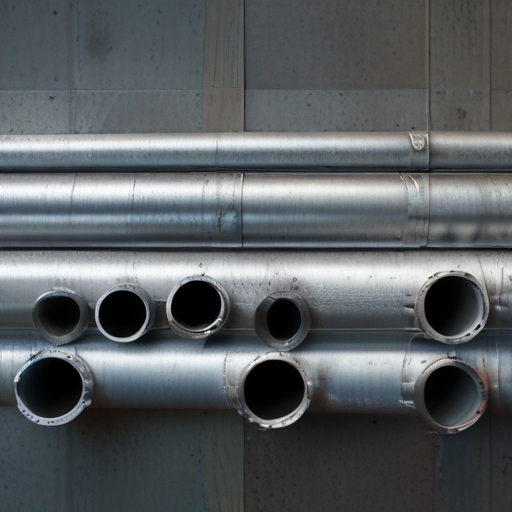
List Buyer Types of "galvanized steel pipes"
Buyer Types of Galvanized Steel Pipes
1. Construction Companies:
- Infrastructure Projects: Firms engaged in building bridges, highways, and other large-scale infrastructure projects.
- Residential & Commercial Construction: Companies constructing houses, apartments, and commercial buildings utilize galvanized steel pipes for plumbing, structural support, and other applications.
2. Manufacturing Companies:
- Automotive Industry: Manufacturers producing vehicles use galvanized steel pipes for exhaust systems and structural components.
- Appliance Manufacturers: Companies making household appliances like refrigerators and washing machines often incorporate galvanized steel pipes in their products.
- Furniture Manufacturers: Producers of metal furniture may use galvanized steel pipes for durability and corrosion resistance.
3. Agricultural Sector:
- Farm Infrastructure: Farmers and agricultural companies use these pipes for irrigation systems, fencing, and constructing greenhouses.
- Livestock Facilities: Galvanized steel pipes are used in the construction of barns, pens, and feeding systems due to their strength and resistance to rust.
4. Oil and Gas Industry:
- Pipeline Construction: Companies involved in the exploration and extraction of oil and gas use galvanized steel pipes for transporting crude oil and natural gas.
- Refineries and Processing Plants: Refineries use these pipes for various internal processes and systems.
5. Utilities:
- Water Supply Companies: Utility companies responsible for water distribution use galvanized steel pipes for water mains and service lines due to their corrosion resistance.
- Telecommunications: Providers may use these pipes for underground and aerial cable installations to protect against environmental damage.
6. Retail and Wholesale Distributors:
- Hardware Stores: Retailers selling construction materials and plumbing supplies.
- Specialized Distributors: Wholesalers focusing on metal products and industrial supplies.
7. DIY Enthusiasts and Small Contractors:
- Individuals and small-scale contractors use galvanized steel pipes for home improvement projects and minor construction work due to their accessibility and versatility.
These diverse buyer types reflect the widespread application and importance of galvanized steel pipes across various industries.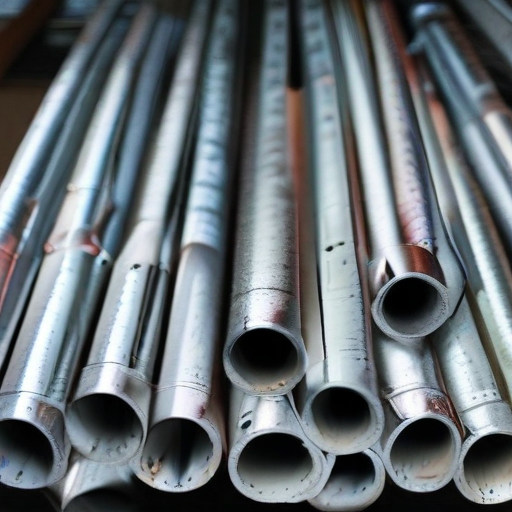
List "galvanized steel pipes" Project Types for Different Industries
Galvanized Steel Pipes: Project Types Across Industries
1. Construction
- Plumbing Systems: Galvanized steel pipes are used for water supply lines and sewage systems due to their corrosion resistance.
- Structural Framework: Employed in building frames, scaffolding, and support structures, ensuring durability and strength.
2. Oil and Gas
- Pipeline Transportation: Used for transporting natural gas, crude oil, and refined products because of their resistance to corrosion and high-pressure tolerance.
- Offshore Drilling: Suitable for subsea pipelines and risers due to their ability to withstand harsh marine environments.
3. Agriculture
- Irrigation Systems: Utilized in irrigation and water distribution systems to provide reliable water flow to crops.
- Fencing and Enclosures: Used for constructing durable fences, animal enclosures, and greenhouse frames.
4. Manufacturing
- Industrial Piping: Integral to manufacturing plants for transporting gases, chemicals, and liquids safely and efficiently.
- HVAC Systems: Employed in heating, ventilation, and air conditioning systems for their longevity and resistance to moisture.
5. Automotive
- Exhaust Systems: Used in the manufacturing of exhaust pipes and systems due to their heat resistance and durability.
- Chassis and Frame Construction: Integral in vehicle frames for enhanced strength and corrosion resistance.
6. Telecommunications
- Antenna Masts and Towers: Used in the construction of masts and towers for reliable support and resistance to environmental factors.
- Cable Conduits: Protect and route cables in telecommunication networks.
7. Water Treatment
- Pumping Stations: Used in the piping systems of pumping stations for potable water and wastewater due to their corrosion resistance.
- Distribution Networks: Employed in the distribution of treated water to ensure contamination-free delivery.
8. Mining
- Slurry and Tailings Pipelines: Used for transporting abrasive materials like slurry and tailings due to their durability.
- Ventilation Ducts: Utilized in mine ventilation systems for their ability to withstand harsh underground conditions.
Galvanized steel pipes are versatile, providing essential solutions across various industries through their durability, corrosion resistance, and strength.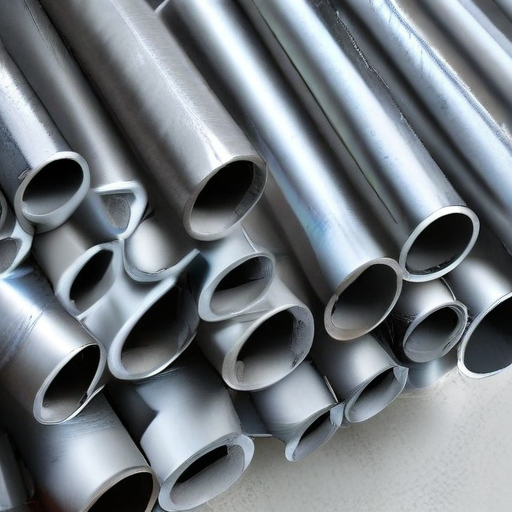
galvanized steel pipes Accessories Upgrades and Custom Manufacturing Options
Galvanized steel pipes are widely used in various industries due to their durability and resistance to corrosion. When considering accessories, upgrades, and custom manufacturing options, there are several key areas to explore:
Accessories
1. Fittings: Available in various shapes and sizes, such as elbows, tees, couplings, and reducers, fittings ensure proper connection and direction of flow in piping systems.
2. Flanges: Used to connect pipes, valves, and other equipment, flanges provide easy access for cleaning, inspection, and modification.
3. Clamps and Hangers: Essential for supporting and securing pipes, these accessories help maintain structural integrity and alignment.
4. Valves: Regulate flow and pressure within the piping system. Options include gate valves, ball valves, and check valves, each suited for different applications.
5. End Caps: Protect pipe ends from damage and contaminants during transport and storage.
Upgrades
1. Coatings and Linings: Enhance corrosion resistance and extend the life of the pipes. Common options include epoxy, polyurethane, and zinc-rich coatings.
2. Insulation: Adds thermal protection, reducing heat loss and condensation. This is crucial for energy efficiency and maintaining process temperatures.
3. Heat Tracing: Involves electric cables or steam lines attached to pipes to maintain or raise the temperature of the contents, preventing freezing or viscosity changes.
Custom Manufacturing Options
1. Bespoke Lengths and Diameters: Pipes can be cut and fabricated to specific lengths and diameters to meet unique project requirements.
2. Pre-assembled Units: Prefabrication of pipe sections, including fittings and valves, can save time and labor on-site.
3. Threading and Grooving: Custom threading and grooving allow for easier assembly and disassembly, facilitating maintenance and future modifications.
4. Welding and Fabrication: Custom welding and fabrication services can create complex pipe systems, including bends, branches, and supports tailored to project specifications.
These accessories, upgrades, and custom manufacturing options ensure that galvanized steel pipes meet the specific needs of diverse industrial applications, enhancing performance, durability, and ease of maintenance.
List Quality Control and The Manufacturing Process of "galvanized steel pipes"
Quality Control and Manufacturing Process of Galvanized Steel Pipes
Manufacturing Process:
1. Material Preparation: Steel sheets or coils are cut to size and cleaned to remove dirt, oil, and rust. This ensures proper adhesion of the zinc coating.
2. Pipe Forming: The prepared steel is formed into pipes through a series of rollers, shaping it into the desired dimensions.
3. Welding: The edges of the formed steel are welded together to create a continuous pipe. The welding seam is inspected and smoothed to ensure structural integrity.
4. Galvanizing: The welded pipes undergo a galvanizing process, typically involving:
- Cleaning: Pipes are cleaned in an acidic solution to remove impurities.
- Fluxing: Pipes are dipped in a flux solution to prevent oxidation before galvanizing.
- Zinc Bath: Pipes are immersed in a bath of molten zinc, where they are coated inside and out. The zinc reacts with the steel to form a tightly bonded alloy layer, providing corrosion resistance.
- Cooling: The galvanized pipes are cooled in a quenching tank, solidifying the zinc coating.
5. Inspection: Galvanized pipes are inspected for coating uniformity, thickness, and adherence. This includes visual inspections and various testing methods.
Quality Control:
1. Material Testing: Incoming steel is tested for chemical composition and mechanical properties to ensure it meets required standards.
2. Process Monitoring: Each stage of the manufacturing process is closely monitored. This includes:
- Ensuring proper temperatures during the galvanizing process.
- Verifying the welding quality.
- Maintaining cleanliness in cleaning and fluxing baths.
3. Coating Thickness: The zinc coating thickness is measured using magnetic gauges to ensure it meets specified requirements.
4. Adhesion Testing: Adhesion of the zinc coating is tested using bend tests, where pipes are bent to check for flaking or peeling.
5. Corrosion Resistance: Accelerated corrosion tests, such as salt spray tests, are conducted to evaluate the durability of the galvanized coating.
6. Final Inspection: A final inspection checks for surface defects, coating consistency, and pipe dimensions to ensure they meet industry standards and customer specifications.
This comprehensive approach ensures the production of high-quality galvanized steel pipes with excellent corrosion resistance and structural integrity.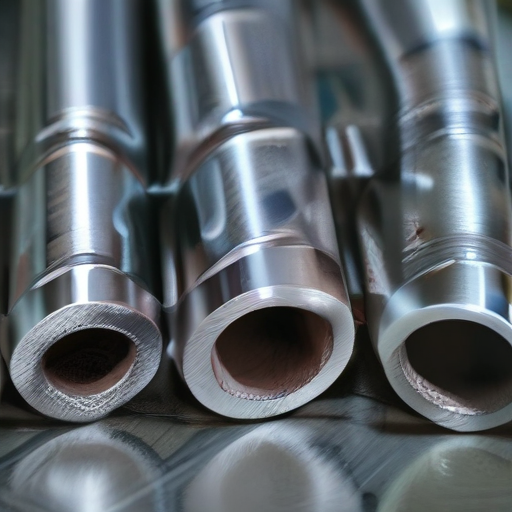
How to use "galvanized steel pipes"
Galvanized steel pipes are steel pipes coated with a layer of zinc to protect them from corrosion. Here are common uses and methods for utilizing them:
1. Plumbing:
- Water Supply: Historically, galvanized pipes were widely used for water supply lines due to their rust-resistant properties.
- Replacement: Modern plumbing often replaces old galvanized pipes with newer materials like PEX or copper due to potential lead contamination from the zinc coating.
2. Construction:
- Structural Support: Galvanized steel pipes are used in construction for scaffolding, frames, and supports due to their durability.
- Fencing and Railings: They are often used for outdoor railings, fencing, and handrails, providing strength and resistance to weathering.
3. Agriculture:
- Irrigation Systems: Galvanized pipes are used in irrigation systems for transporting water to fields and crops.
- Animal Pens: They serve as sturdy frames for animal pens and enclosures.
4. Industrial Applications:
- Conduits: Used as conduits for electrical wiring and protecting cables.
- Exhaust Pipes: Utilized in certain exhaust systems where corrosion resistance is critical.
5. DIY Projects:
- Furniture: Popular in DIY projects for creating industrial-style furniture like tables, chairs, and shelves.
- Decor: Used in home decor for making unique fixtures, towel racks, and curtain rods.
Installation Tips:
- Cutting: Use a pipe cutter or hacksaw to cut galvanized steel pipes to the required length.
- Threading: Use a pipe threader to create threads at the ends for screw fittings.
- Joining: Connect pipes using threaded fittings, ensuring a tight seal with pipe joint compound or PTFE tape.
- Safety: Wear protective gear when cutting or handling to avoid injuries from sharp edges or zinc fumes.
Always ensure galvanized steel pipes are appropriate for your specific application, especially for potable water systems where modern alternatives might be preferable.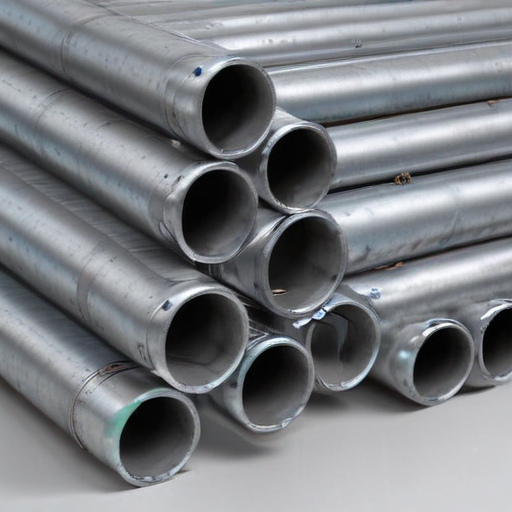
"galvanized steel pipes" Comparative Analysis
Comparative Analysis of Galvanized Steel Pipes
Introduction:
Galvanized steel pipes are coated with a layer of zinc to protect them from corrosion and extend their lifespan. They are commonly used in plumbing, construction, and outdoor applications. This analysis compares galvanized steel pipes with other types of pipes, focusing on durability, cost, application, and environmental impact.
Durability:
Galvanized steel pipes are known for their durability due to the zinc coating that provides a robust barrier against rust and corrosion. However, over time, the zinc can erode, especially in highly acidic or alkaline environments, leading to rust. In comparison, PVC pipes, although less durable in terms of mechanical strength, are highly resistant to corrosion. Copper pipes offer excellent durability but are more susceptible to corrosion in certain water conditions.
Cost:
Galvanized steel pipes are generally more expensive than PVC but cheaper than copper. Their initial cost is higher than that of PVC but lower than that of copper pipes. However, the long-term maintenance costs can be higher due to potential corrosion issues, making PVC and PEX (cross-linked polyethylene) more cost-effective for some applications.
Application:
Galvanized steel pipes are widely used in outdoor and industrial applications due to their strength and resistance to mechanical damage. They are often used for water supply lines, outdoor railings, and scaffolding. In contrast, PVC pipes are preferred for underground and indoor plumbing due to their ease of installation and corrosion resistance. Copper pipes are typically used in hot and cold water supply lines and HVAC systems due to their thermal conductivity.
Environmental Impact:
The production of galvanized steel pipes involves mining and refining of steel and zinc, which has a higher environmental footprint compared to PVC and PEX pipes. Additionally, the potential leaching of zinc into the water supply can pose environmental concerns. PVC and PEX pipes, while plastic-based, have a lower overall environmental impact due to their longer lifespan and recyclability.
Conclusion:
Galvanized steel pipes offer strong durability and are suitable for specific applications where mechanical strength is essential. However, considering cost, corrosion resistance, and environmental impact, alternatives like PVC and PEX may be more advantageous for certain uses. Proper selection depends on the specific requirements of the project and environmental conditions.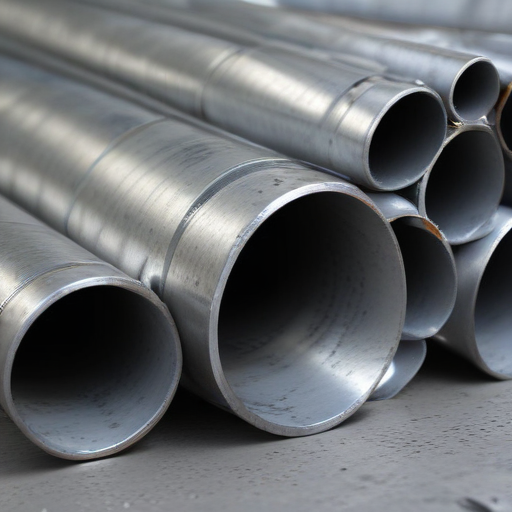
"galvanized steel pipes" Warranty and Support
Warranty and Support for Galvanized Steel Pipes
#### Warranty
Galvanized steel pipes typically come with a manufacturer's warranty that covers defects in materials and workmanship. The warranty period can vary but generally ranges from 10 to 20 years, depending on the manufacturer and the specific product. It's essential to check the warranty details provided at the time of purchase.
Coverage:
1. Defects in Materials: Protection against any defects in the galvanized coating or the steel itself.
2. Workmanship: Ensures the pipes have been manufactured according to industry standards and are free from production faults.
Exclusions:
- Damage due to improper installation or maintenance.
- Corrosion or deterioration caused by harsh environmental conditions not covered under normal usage.
- Any alterations or modifications made to the pipes after purchase.
#### Support
Support for galvanized steel pipes is provided by the manufacturer or the retailer from whom the pipes were purchased. Support services typically include:
Technical Assistance:
- Installation Guidance: Detailed instructions and best practices for installing galvanized steel pipes to ensure longevity and performance.
- Maintenance Tips: Recommendations for routine inspections and maintenance to prevent premature corrosion and wear.
Customer Service:
- Troubleshooting: Assistance with diagnosing and resolving issues related to the pipes, including leaks, corrosion, and mechanical damage.
- Replacement and Repairs: Guidance on how to proceed with warranty claims for defective pipes, including documentation and proof of purchase requirements.
Online Resources:
- Documentation: Access to product manuals, installation guides, and maintenance tips.
- FAQs: Commonly asked questions and their solutions related to galvanized steel pipes.
It's advisable to keep all purchase receipts and warranty documents safe and to regularly check the condition of the pipes to identify and address any issues promptly.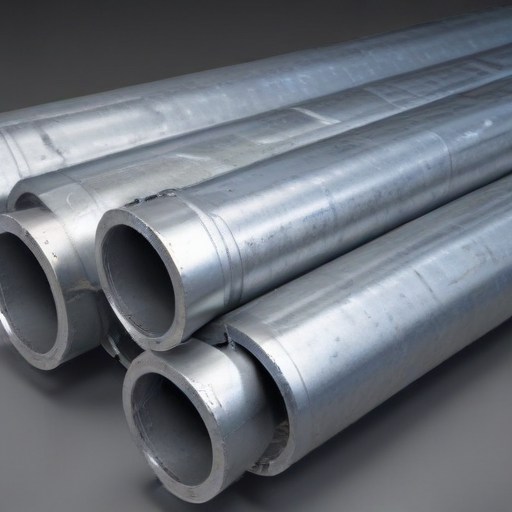
List "galvanized steel pipes" FAQ
FAQs on Galvanized Steel Pipes
1. What is galvanized steel?
- Galvanized steel is steel that has been coated with a layer of zinc to protect it from corrosion and rust.
2. How are galvanized steel pipes made?
- They are typically made by dipping steel pipes into molten zinc, creating a protective zinc coating.
3. What are the benefits of using galvanized steel pipes?
- They are highly durable, resistant to rust and corrosion, and have a long lifespan, making them ideal for outdoor and industrial applications.
4. Where are galvanized steel pipes commonly used?
- They are used in water supply systems, fencing, scaffolding, and for various structural applications.
5. How long do galvanized steel pipes last?
- Depending on the environment, they can last 25 to 50 years or more.
6. Can galvanized steel pipes be used for drinking water?
- Yes, but over time, they can leach zinc and other metals, which may affect water quality. Newer alternatives are often preferred for potable water.
7. How do you maintain galvanized steel pipes?
- Regular inspections for rust and damage, along with protective coatings or paint, can extend their lifespan.
8. Are galvanized steel pipes environmentally friendly?
- They are recyclable, which makes them a more sustainable choice compared to some other materials.
9. Can galvanized steel pipes be welded?
- Yes, but the zinc coating must be removed around the weld area to avoid toxic fumes and ensure a strong bond.
10. How do galvanized steel pipes compare to other materials like PVC or copper?
- They are generally more durable and robust than PVC but can be heavier and more prone to corrosion than copper in certain conditions.
11. What are the drawbacks of galvanized steel pipes?
- They can corrode from the inside out if the protective zinc layer is damaged and are heavier than alternatives like plastic or aluminum.
12. How do you identify galvanized steel pipes?
- They typically have a rough, matte gray finish due to the zinc coating.
This FAQ covers the essentials for understanding and using galvanized steel pipes in various applications.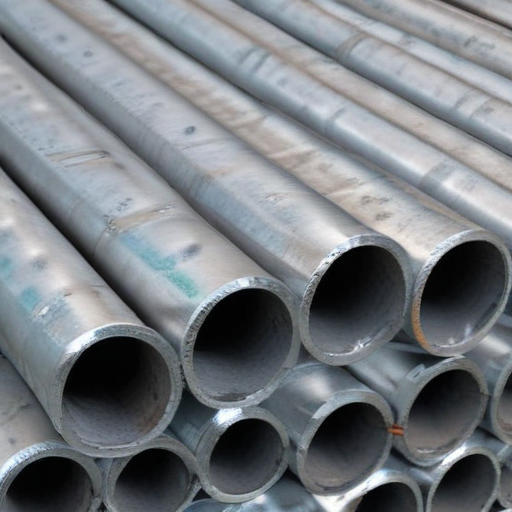
Top 10 FAQ with answer about galvanized steel pipes for Buyer Sourcing from China
Top 10 FAQs About Galvanized Steel Pipes for Buyer Sourcing from China
1. What is galvanized steel pipe?
- Galvanized steel pipe is coated with a layer of zinc to prevent rust and corrosion, enhancing its durability and longevity.
2. What are the main uses of galvanized steel pipes?
- These pipes are commonly used for water supply lines, outdoor construction, fencing, scaffolding, and industrial applications due to their resistance to rust and corrosion.
3. How is the quality of galvanized steel pipes from China?
- The quality can vary. Look for suppliers with ISO certification, good manufacturing practices, and positive customer reviews to ensure high standards.
4. What are the common standards and certifications required?
- Common standards include ASTM, BS, EN, and JIS. Certifications like ISO 9001, CE, and SGS indicate compliance with international quality standards.
5. How can I ensure the pipes meet my specifications?
- Request material test reports, conduct third-party inspections, and ensure the supplier provides samples for verification before bulk purchasing.
6. What is the typical lead time for orders?
- Lead times can range from 15 to 45 days depending on order size and production schedules. Confirm specific timelines with the supplier.
7. What are the common dimensions and thicknesses available?
- Galvanized steel pipes come in various sizes, typically ranging from 1/2 inch to 12 inches in diameter with thicknesses from 0.5mm to 6mm.
8. What is the price range for galvanized steel pipes?
- Prices vary based on size, thickness, and quantity, generally ranging from $500 to $900 per ton. Get quotes from multiple suppliers for comparison.
9. Are there minimum order quantities (MOQs)?
- Yes, MOQs typically range from 5 to 20 tons. Some suppliers may offer flexibility for first-time buyers or sample orders.
10. What payment terms are commonly accepted?
- Common payment terms include T/T (Telegraphic Transfer), L/C (Letter of Credit), and sometimes D/P (Documents against Payment). Discuss and negotiate terms upfront.
By addressing these FAQs, buyers can make more informed decisions when sourcing galvanized steel pipes from China.

